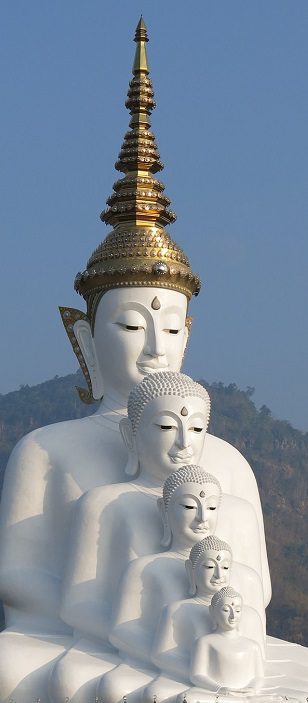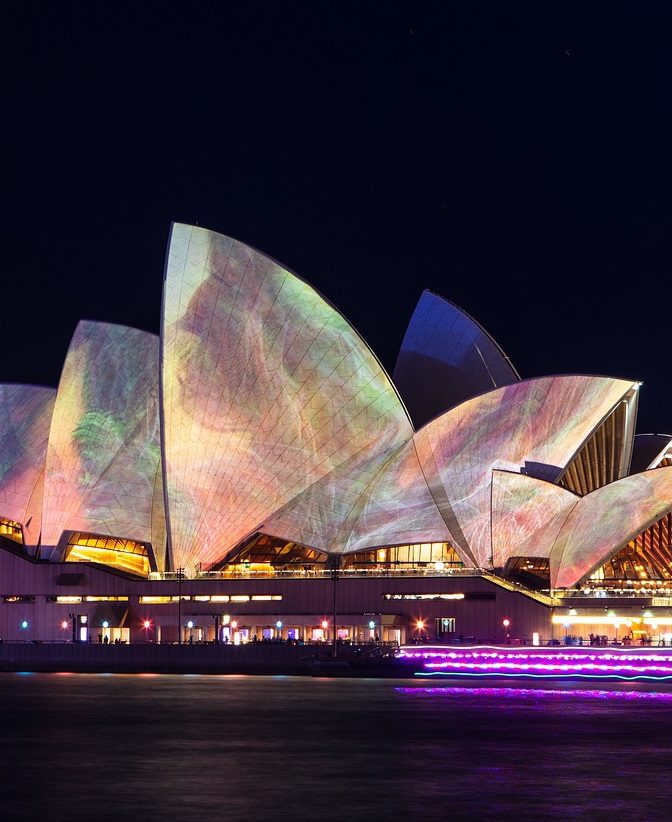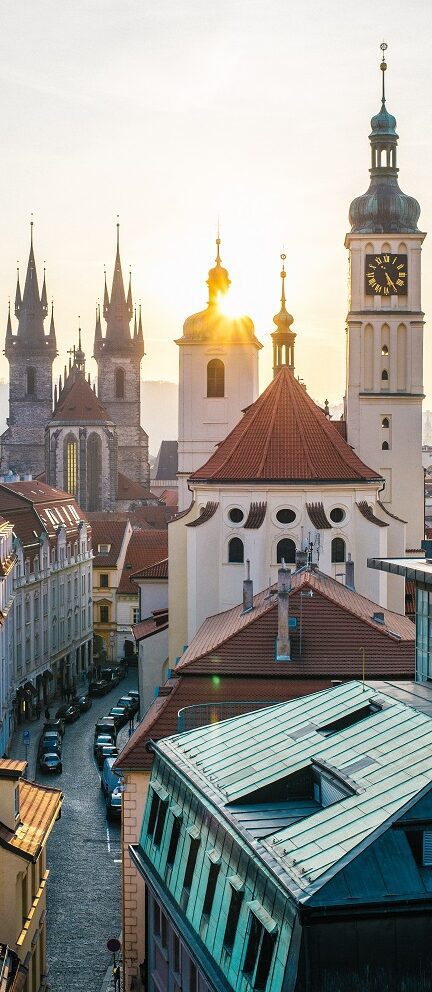A cow parted the stream of people as effectively as a royal litter, then another tide of pilgrims carried me sideways along an alley before depositing me in a quiet yard on the riverbank. I had arrived at the cremation ghats where white-clad figures were gathered around wooden pyres on which the remains of recently deceased relations and their desires were going up in flames. To one side of the burning ghats, sitting cross-legged on the floor of a small office, was a bespectacled grim reaper, an elderly fellow, the recorder of deaths. He gestured for me to sit on the carpet beside him, then ordered 
Open on his lap was the current volume. With a long pen, he carefully entered the name of the latest arrival, whose burning odour hung all around. Then he closed the ledger and shrugged. ‘Their revels now are ended,’ he said.‘All are melted into air, into thin air.’ He smiled at my surprise. ‘Prospero, The Tempest, Act Four.’ Outside in the yard dung-spattered cows gazed dolefully at passers-by. The souls of the deceased must cross the River Vaitarani to the realm of Yama, the Hindu god of death. The cows, it is believed, help them. The dead hang onto their tails to get across the celestial river to the next world.
After a day in town, among the heaving crowds of pilgrims so focused on self-cleansing and self-advancement, I was happy to get back to the peace of the ashram and my friends, the sadhus. The guardians of the faith, the vanguard of the gods, they perched on the world as lightly as birds. There were a dozen or so sadhus staying in the ashram. They all had beards that would have impressed Methusaleh, and long, matted hair embroidered with shells and coloured thread. Their foreheads were smeared with bright tikka paste signalling their allegiance to Shiva, and on their skinny torsos was a confusion of beads known as Shiva’s tears. I thought of them as Old Testament prophets who had gone rogue; Moses, perhaps, after a life changing acid trip with a couple of flaky girls, wearing nothing but sandals and flowers. They thought of themselves as being free. They were also friendly, thoughtful, and charming. You couldn’t hope for better room mates.
I say room mates but really I was too attached to the pleasures of this world to be considered part of the gang. I hadn’t renounced everything and taken up a life of early-morning meditation and smiling. I was a traveller, not a devotee. The Lakshmi Niwas camp was in a walled compound on the banks of the Ganges; Lakshmi, the camp owner, is a follower of the ashram’s guru. Laid with colourful dhurri rugs, the tents were furnished in a colonial style with travelling chests and mahogany writing tables, fine bed linen, a shower and a flush loo. There were electric fans, drivers, chefs, guides and porters, and also laundry service. In the evening, after a sumptuous vegetarian dinner in a beautiful mess tent, I sat out on my porch in a planter’s chair smoking a cigar and watching the evening fade across the Ganges while the sadhus chanted around the banyan tree.

I usually dropped in on them post-chanting in their durna, a sort of ashram living room where they sat cross-legged round the sacred fire like an extended family seated at a domestic hearth for a bit of companionable drug-taking. Along the walls, strings of lights hung between images of Shiva, pictures of gurus and a useful calendar from Sanjeev Cement Company Ltd. The fire, which was never allowed to go out, was tended by the sadhu I knew only as the Fireman. Smeared with ash, he was naked but for several marigolds in his hair. Sadly his navel-length beard did not preserve his modesty; his willy looked like a shy forest creature peeking out from a tangle of vines. Nakedness – sky-clad is their term – is one of the final stages of a sadhu’s journey, naturism with a spiritual bent, a sign he has thrown off the conventions of the world along with his trousers. I got used to it, though I had to close my eyes when the Fireman was at the crease in our afternoon cricket games.
The sadhus were a surprising lot. Among their number was a former lawyer, a former teacher, a former IT salesman, and, of course, a Swedish former model. The latter was the original hippy chick whose personal geography included Chelsea in the 1960s, Kathmandu in the 1970s and Ibiza in the 1980s. When her fellow groovers retired to suburbia, Uma had gravitated to India and a contemplative life of chanting, smoking weed and tending a garden, the only foreigner and the only woman in the ashram. The Fireman’s right-hand man, a diminutive fellow with a voice that would make Barry White sound like a soprano, did the honours, lighting up a chillum, a hashish pipe the size of a Cuban cigar. As it was handed round like a sacrament, a contemplative stillness descended on the group, interrupted only occasionally by giggles.
‘Detachment from attachments,’ the Fireman said, stroking his beard as if it were a petcollie. ‘Moksha,’ he whispered, his voice now a wheeze ‘Liberation.’ The following morning found me on a small island midstream in the Ganges with Rome Baba. Silver light spilled across the surface of the river. The blue peaks in the distance were the foothills of the Himalayas. Rome Baba and I had become boon companions. He had acquired his nickname because he had spent several years in Italy, and we bonded over our shared ability to speak very bad Italian. The language suited him in Hindi, he sounded rather serious. In Italian, he became flamboyant and flirtatious. His Italian former friends would have approved of his dress sense: Rome Baba was a bit of fashionista in the sadhu world.

Today his bare torso was laced with long necklaces and strings of beads. His waist-length hair, pulled into an elaborate topknot, was completely covered with flowers – yellow marigolds, white carnations, pale strings of jasmine – so he appeared to be wearing the kind of spectacular Easter bonnet favoured by rural folk on the American prairies in the ‘1930s. He looked like a celestial prince, a member of a heavenly delegation. I suddenly had an image of him at the Gates of Paradise, winking mischievously at me, beckoning me inside while plucking a flower from his hair and offering it to Parvati, Shiva’s wife. Rome Baba was also an impressive yogi. In his mid-5s, he had the flexibility of a 14-year-old Romanian gymnast; so far I had managed to dodge his early-morning yoga classes although others spoke of them with awe. This morning on the river island he was tying himself into elaborate knots. One moment his ankles were behind his head. The next his head was behind his behind.
All this without the slightest threat to the Easter bonnet. Should the wind change and he become stuck, I worried I’d never be able to unpick him. As we made our way back across the side channels, Rome Baba was telling me the story of his life. It threatened to be interminable, beginning as it did with learning to walk. He stopped in midstream as he reached a crucial moment during his stay in Rome. There was a girl, a betrayal, a broken heart ‘Paula took my face in her hands,’ he said. ‘She told me she was leaving for Copenhagen.’The cold riversurged about our thighs.‘I cried. Teats and teats and teats. Five days. That is when I understood the pain of attachment. So I met a beautiful woman in Piazza di Spagna. We made love in the Villa Borghese and I surrendered to the loss of Paula.’ He grinned and pulled me up, dripping like a wet dog, onto the bank ‘We must accept our fate, and not waste our energies desiring what we do not have. We must learn to live this moment,’ Rome Baba said. ‘Because it is the only moment we have.’







